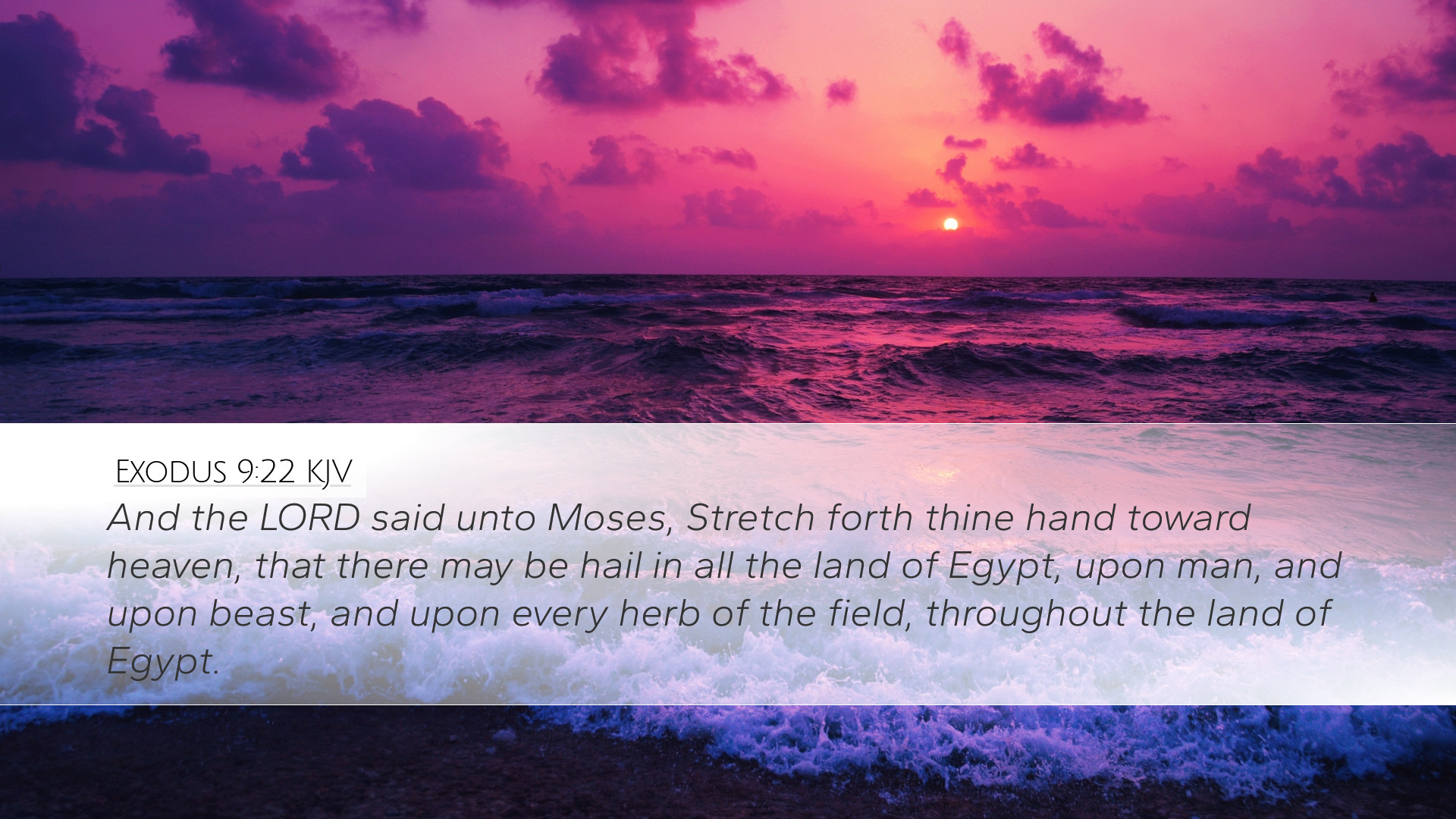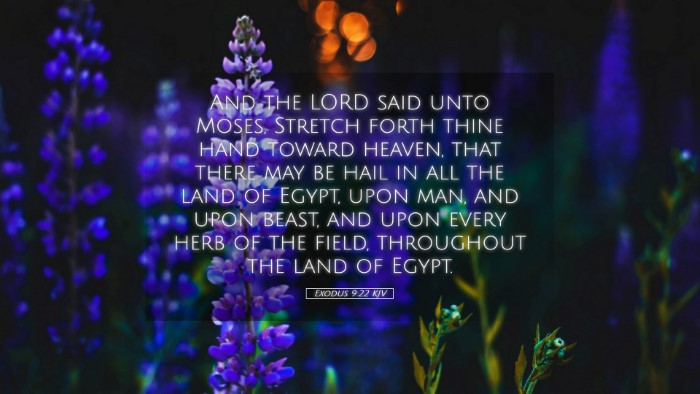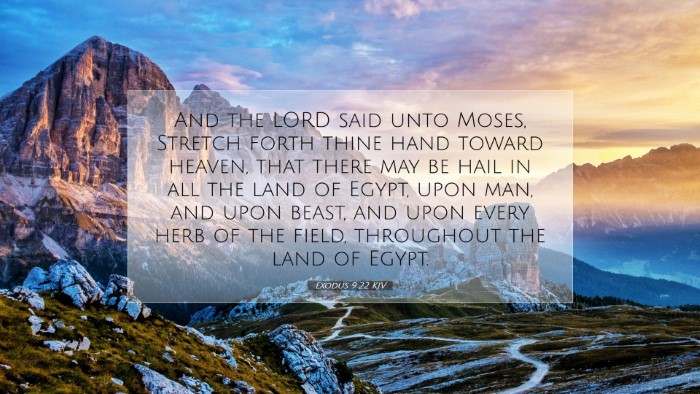Commentary on Exodus 9:22
Verse Reference: Exodus 9:22 - "And the LORD said unto Moses, Stretch forth thine hand toward heaven, that there may be hail in all the land of Egypt, upon man, and upon beast, and upon every herb of the field, throughout the land of Egypt."
Introduction
The passage in Exodus 9:22 marks a critical moment in the narrative of the plagues inflicted upon Egypt as a judgment against Pharaoh's refusal to release the Israelites from bondage. This commentary synthesizes insights from public domain works, including those of Matthew Henry, Albert Barnes, and Adam Clarke, to enrich our understanding of this significant biblical episode.
Contextual Background
This verse is situated in the broader context of the plagues, where God demonstrates His power and sovereignty over both nature and the Egyptian deities. The hail plague is the seventh in a series of divine judgments, illustrating escalating consequences stemming from Pharaoh’s hardened heart.
Historical Context
The Egyptians were a society deeply embedded in idolatry, with many deities representing natural forces. Hail, a destructive force, would directly challenge these beliefs, showing that the God of Israel was more powerful than the Egyptian gods.
Theological Significance
-
Divine Sovereignty:
This verse underscores God's absolute control over creation. As noted by Matthew Henry, God commands the elements themselves to act in accord with His divine will. The act of stretching forth Moses' hand symbolizes prophetic authority and the direct intervention of God in human affairs.
-
Call to Repentance:
Albert Barnes emphasizes that the plagues serve as a divine wake-up call for Pharaoh and the Egyptians. The hail is both a judgment and an opportunity to acknowledge God's supremacy and to repent from their disobedience.
-
Judgment against Idolatry:
Adam Clarke expands on how the hail serves to illustrate God's justice against the false gods of Egypt. The Egyptians worshipped many deities, but the overwhelming power exhibited through the hail would unequivocally challenge their beliefs.
Practical Applications
-
Understanding God's Justice:
This scripture reminds us that God's actions, even in judgment, are rooted in holiness and justice. Pastors and theologians should encourage a balanced understanding of God's character, highlighting both His mercy and His righteous judgment.
-
Responding to Divine Authority:
As students and believers, we are called to recognize and submit to the authority of God over our lives. The plagues serve as a cautionary tale about the consequences of hardening one’s heart against God’s directives.
-
Engaging in Spiritual Warfare:
This passage can also be viewed through the lens of spiritual warfare, illustrating the continuous battle between good and evil. The hail represents God's intervention against the forces that oppose His people, encouraging a view of God as a protector and defender.
Conclusion
Exodus 9:22 serves as a powerful reminder of God's authority and the consequences of disobedience. The insights gleaned from Matthew Henry, Albert Barnes, and Adam Clarke elucidate the multifaceted dimensions of this verse, encouraging deeper reflection on God's nature and His dealings with humanity. For pastors, students, theologians, and scholars, this passage calls for renewed recognition of God's sovereignty and a call to personal and communal repentance.


